York’s Strategic Research Plan identifies five intersecting themes that are poised to have a profound impact.
By Krista Davidson and Elaine Smith

York’s community of researchers, scholars and innovators are leading the charge in areas that will create sustainable, innovative and equitable approaches for a better future.
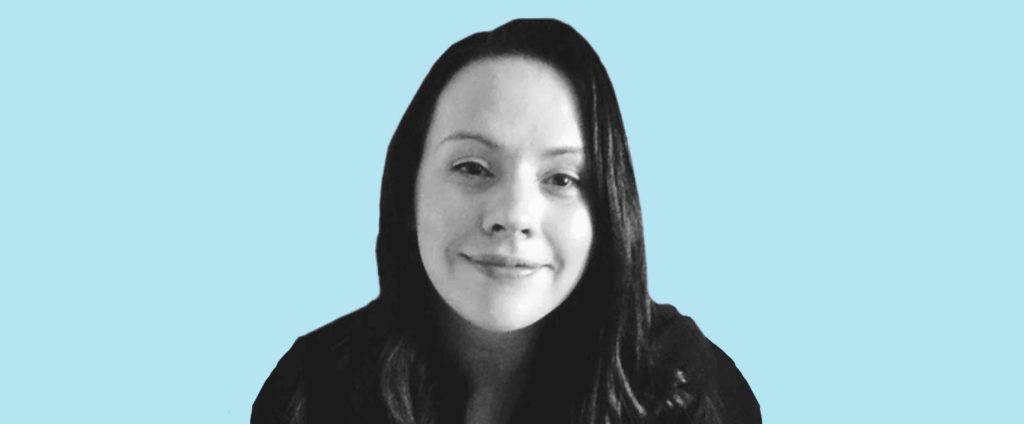
1. Indigenous Futurities
Faculty: Ashley Day, School of Kinesiology & Health Science
Funding: SSHRC
Decolonizing physical education
It wasn’t until she worked as a physical education teacher that Ashley Day realized that her own love of sports and athletic competition weren’t universal. Day, a lecturer of Dene and settler backgrounds, began exploring physical education for her PhD dissertation with input from urban Indigenous co-researchers who shared their own experiences of gym class. Her resulting research explores what health and well-being mean for diverse urban Indigenous Peoples and how these perspectives could decolonize physical education.
“Collectively, the research found how traumatic physical education classes are, especially for people of different abilities, different cultures, and those of diverse genders and sexualities,” says Day. “Physical education is very colonial, hierarchical, and focuses mainly on ball sports.
“It’s important to invert the top-down process and work from the bottom up. It’s about autonomy, sovereignty and the self-determination to move freely and to explore physical activities that are more holistic.”
Drawing on Indigenous ways of knowing, being, worldviews and laws, scholars are conducting research that is relevant to and respects Indigenous life and approaches to knowledge and learning, while enhancing cultural, economic and environmental sustainability.
Day notes that this doesn’t mean eradicating what already exists; it simply means acknowledging that other ways exist, too.
“There is value in all paradigms, but we’ve just privileged one,” she says. “We need to make room for different ways of engaging movement and wellness that aren’t so involved with competition and competencies.”
It surprised Day to discover how traumatic many people found their physical education experiences to be, even years later.
“People remember these experiences vividly,” she says. “It can be traumatic for people who aren’t sports people and can be ostracizing to be watched and graded. I want to challenge that very narrow view of physical education, because some people are so turned off, it can take decades to come back to physical activity.”
Day’s research has implications for Indigenous communities and beyond.
“It’s about rethinking and expanding how we do physical education to be more reflective and supportive of students.”
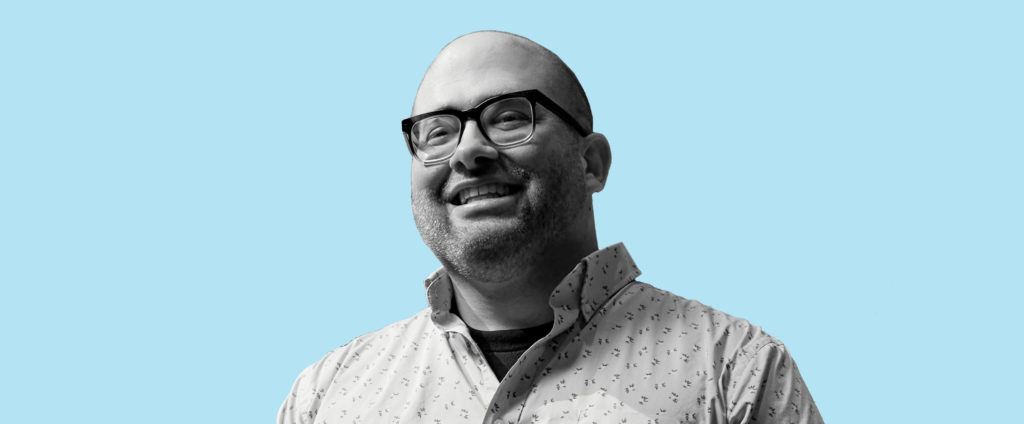
2. Digital Cultures
Faculty: Ian Garrett, School of the Arts, Media, Performance & Design
Funding: SSHRC; Centre for Sustainable Practice in the Arts
Collaborators: Tarah Wright, Dalhousie University
Changing how we think of the world through sustainable art
Ian Garrett is using art to promote a more sustainable world. Garrett, who teaches ecological design for performance at York, views sustainability and the arts as a symbiosis through which we can mobilize action against climate change.
“We perform through the lens of society and civilization, but we can also use the arts to perform to the type of society we want to live in,” says Garrett, who is also a producer for the U.S.-Canadian company Toasterlab and director of the Centre for Sustainable Practice in the Arts.
Garrett’s research ranges from practical approaches – such as sourcing green materials and renewable energy in theatre production – to the use of sustainability within the arts to impact change.
York researchers are addressing how the digital world influences the way we live, interact and conduct business.
One project is Creative Green Tools Canada, which brings together researchers and arts councils from across the country to learn sustainable strategies. Creative Green Tools Canada includes a comprehensive mechanism for carbon calculation and reporting tools to allow arts organizations to record and monitor their own carbon footprint.
“Our societal values around sustainability and equity inclusion are reshaping the way the cultural sector functions,” he says.
Collaborating with Tarah Wright (Dalhousie University) on a SSHRC Insight Grant, Garrett will examine the way sustainability is represented through the arts. The project unites Canadian and global scholars, artists and practitioners working in sustainability and the arts to examine the barriers and to develop a comprehensive research strategy for a sustainable future.
“You can’t make art that isn’t within the context of climate change because that is the world we’re living in. My hope is that we can use quantitative and qualitative research to get us to the other side of the climate crisis.”
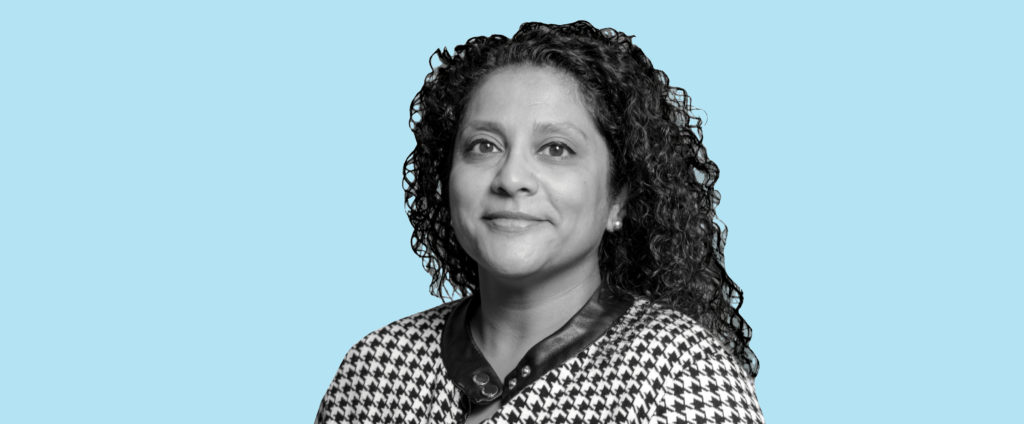
03. Healthy Individuals, Healthy Communities & Global Health
Faculty: Rebecca Pillai Riddell, Faculty of Health
Funding: CIHR; IBM Canada (through SOSCIP)
Collaborators: Indigenous Friends Association; 360ºkids; Strongest Families Institute; Strong Minds Strong Kids, Psychology Canada
A model for inclusive mental health
A wave of awareness has grown around de-stigmatizing mental health over the last 10 years, yet many racial, ethnic and gender-diverse groups remain at risk for poor mental health outcomes. Professor Rebecca Pillai Riddell aims to change that through a revolutionary new research and training initiative.
Pillai Riddell and a leadership team of eight principal investigators from six Canadian institutions have received $5.45 million to develop a Digital, Inclusive, Virtual and Equitable Research Training in Mental Health platform (DIVERT), which will be accessible to all future learners in the field.
“The current mental health system adopts a Eurocentric view that doesn’t serve everyone equally,” explains Pillai Riddell.
DIVERT will pool resources nationally to offer a broad spectrum of training, expertise and diversity to students at every level. IBM Canada, through SOSCIP, will provide access to sophisticated computing infrastructure to develop tools such as chatbot apps and AI techniques that can be used to gain insight into mental health.
York researchers are bridging new knowledge and applications to improve the understanding, prevention and treatment of disease and injuries, and to support healthier environments for individuals and communities.
“This technology can help us predict the proper course of action as well as manage assessments for patients, determine which patients are most susceptible to suicidality, and who can benefit from early intervention. Right now, we are limited to what one human mind can process.”
Pillai Riddell says the interdisciplinarity of the team, which includes 80 collaborators, is critical.
“Mental health doesn’t live within one discipline. That’s why we’re bringing together social workers, clinical psychologists, physicians, nurses, occupational therapists and computer scientists to move mental health research in a way that increases inclusivity and accessibility.”
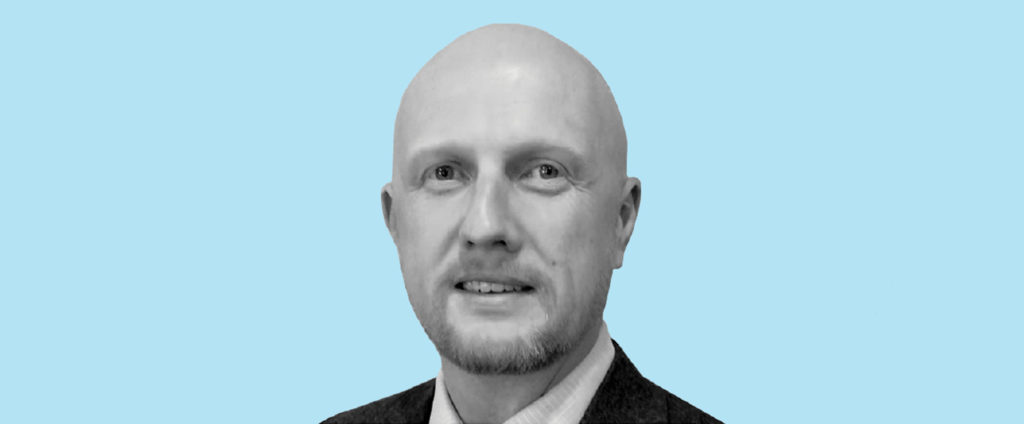
4. Integration of Artificial Intelligence in Society
Faculty: Ian Stedman, Faculty of Liberal Arts & Professional Studies
Funding: CIHR
Collaborators: Alistair Johnson, Mjaye Mazwim Melissa McCradden (SickKids)
AI and child health care data: addressing issues of accountability and privacy
How do we ethically use pediatric data, while protecting one of our most vulnerable populations?
That is a question Ian Stedman, a professor at the Faculty of Liberal Arts & Professional Studies and an alumnus of Osgoode Hall Law School, aims to address. His research involves developing parameters around a social licence for reusing routinely collected pediatric health data to enable and foster future research by addressing issues around privacy, cybersecurity and ethics.
For Stedman, who was diagnosed with a rare disease called Muckle-Wells syndrome (MWS) in his 30s, the research has a personal motivation.
“During the first 18 years of my life I had close to 200 regular visits to my GP for the seven same symptoms, which I now know were associated with my diagnosis. Today, AI technologies could have diagnosed my disease by the eighth visit,” says Stedman.
MWS, which can include symptoms such as severe fever, rash and joint pain, is so rare that Stedman was the 12th person in Canada to be diagnosed. The 13th person to be diagnosed was his then one-year-old daughter Lia (now age nine).
York researchers are applying equitable and moral perspectives to AI technologies to maximize benefits and minimize harm and unintended consequences for the communities we serve.
“There are a lot of conversations about mechanisms of accountability and what changes within the legal, policy and regulatory environments will be necessary to ensure that AI advances in an equitable, legal and ethical way,” says Stedman, a member of the CIHR’s Institute for Genetics (IG) Advisory Board, a legal member on SickKids’ Research Ethics Board and a member of York’s AI and Society Task Force.
He hopes to develop a framework that legitimizes AI and data-driven health research.
“We have these academic centres at the University Hospital Network, Mount Sinai and SickKids, where revolutionary work is being undertaken but rarely commercialized. Getting this research out across provincial jurisdictions so the broader Canadian health care community can benefit will be a gamechanger.”
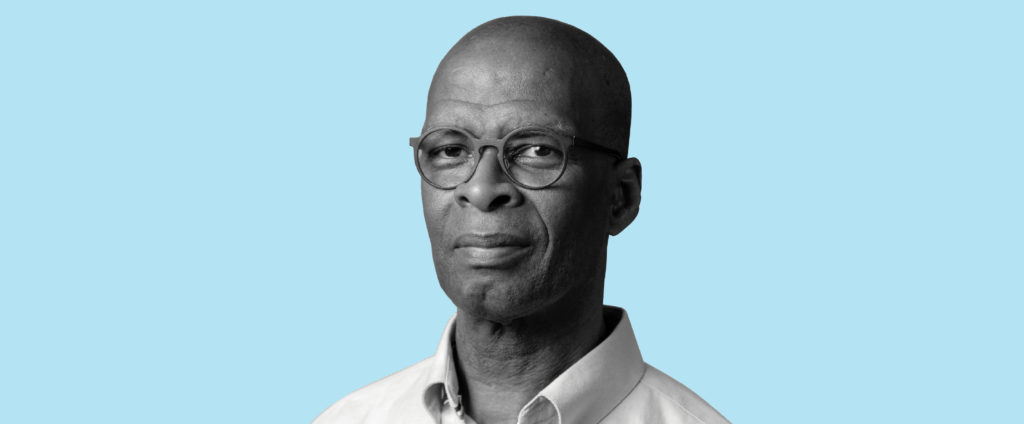
5. Public Engagement for a Just and Sustainable World
Faculty: Carl Everton James, Faculty of Education
Exploring how power differential fuels bullying
Bullying in the classroom is more than what a student or teacher does to another person, maintains Carl James, who holds the Jean Augustine Chair in Education, Community and Diaspora in the Faculty of Education. James is also the recipient of the 2022 Killam Prize.
“In exploring bullying, you must look at how societal power imbalances are replicated in the classroom and in teaching materials. We constantly need to be exploring how these inequities are playing out,” says James, who is also the University’s senior advisor on equity and representation. James is widely recognized for his research contributions in the area of the intersectionality of race with ethnicity, gender, class and citizenship as they shape constructs of identity.
He cites an example in Minnesota where a professor used the “N-word” and justified it, saying it was in the textbook being used. “The professor wasn’t paying attention to how it was making the students feel devalued.
“In both high schools and universities, there is a lack of curriculum that speaks to all students’ experiences. It’s not appropriate to say, ‘I don’t have to pay attention to your experience because this is the curriculum.’ That attitude is representative of the power dynamic in society that justifies who can prescribe ideas and what ideas they prescribe. To be inclusive, we should not be reinforcing such power differentials.”
James believes that it’s important to foster an equitable learning environment, and to use materials that reflect our cultural diversity as well as our historical, social and political context.
Societal issues such as climate change, racism and political polarization are increasing inequalities. York researchers are challenging the status quo and addressing the origins, nature and consequences of inequality and oppression.
“In the classroom, the curriculum we construct must be based on the students we are teaching. Our pedagogical approach must take into account the ways students engage with the learning material.
“Students are not neutral parties,” he adds. “They come with experiences shaped by identities such as race and gender. Teaching is much more effective when relationships are established, and the experiences students bring to class are supported by what we are teaching.”
Read more
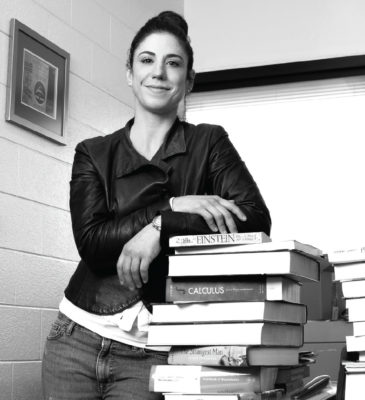
The Biophysics of age-related visual brain diseases
Innovative technique will bring to light new treatments and diagnostics for vision-related diseases
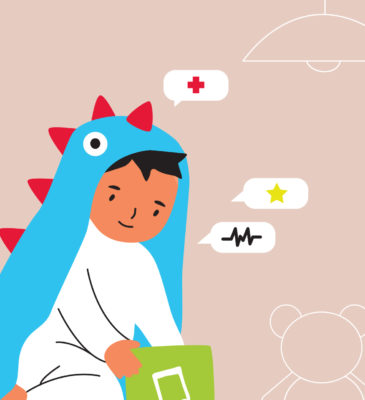
Research for a better future
Creating positive change in areas related to decolonization; the integration of AI in healthcare; mitigating racism in classrooms; sustainable arts; and inclusive health care
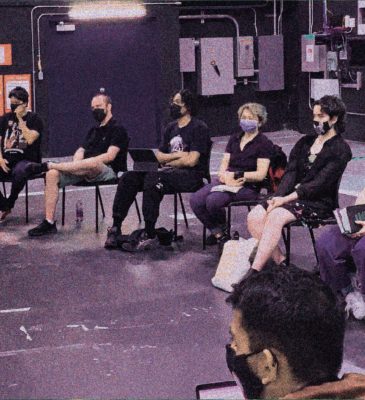
Full Circle: Alum partners with Cinespace studios and creates student opportunities
Partnership will let students experience behind-the-scenes of a billion-dollar film industry

